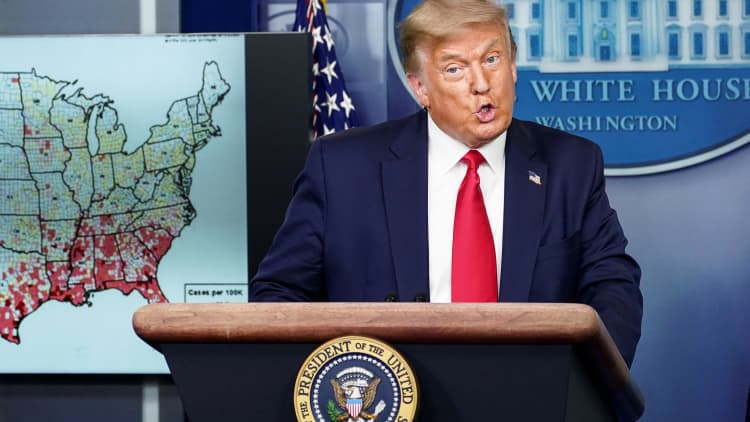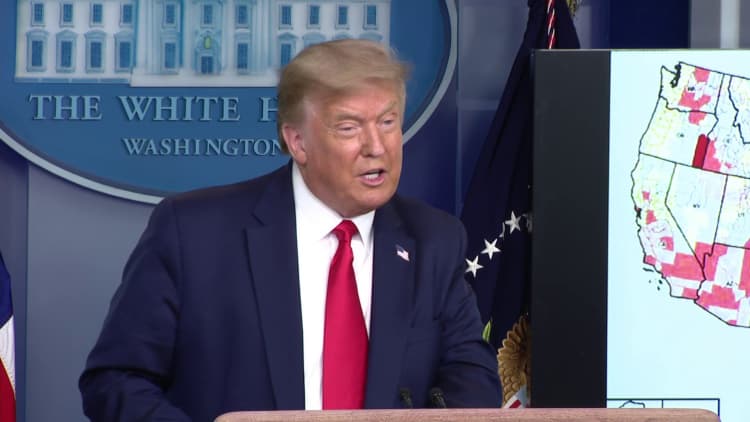
President Donald Trump on Thursday moved to cancel the Jacksonville, Florida, portions of the Republican National Convention, scheduled for August, citing the threat of the coronavirus.
"I told my team it's time to cancel the Jacksonville, Florida, component of the GOP convention," Trump said at a White House briefing on the coronavirus. The state has become a hot spot for the virus.
"Thousands of people [are] wanting to be there, and I mean in some cases desperately be there," Trump said. "People making travel arrangements all over the country."
Trump said he will still deliver a campaign speech but "in a different form," without giving any additional details. He said he would announce more details on the speech in the coming days.
"We won't do a big crowded convention, per se," he said, adding that he cares "deeply about the people of Florida."
The Jacksonville 2020 Host Committee issued the following statement: "President Trump made the absolute right decision for the health and safety of the people of Jacksonville and of the entire state of Florida. The rise in the number of COVID-19 cases in Florida is serious and the President and the RNC have demonstrated great concern for the safety of all Floridians."
The announcement marked a staggering turnaround for Trump, who pushed for the convention to be moved from Charlotte, North Carolina, after a fight with the state's Democratic governor over whether coronavirus precautions would limit the size of crowds.
In recent weeks, the convention has undergone significant changes in logistics and execution as the number of confirmed coronavirus cases continues to spike in Florida, forcing the Republican Party to rethink its planning to account for measures to avoid spreading the disease to attendees and employees.
Earlier this month, organizers for the Republican National Convention announced a severe cap on the number of people who can attend the event in Jacksonville.

A convention like this typically attracts tens of thousands of people over the course of multiple days.
A new Quinnipiac University poll found that 62% of voters said they thought it would be unsafe to hold the convention in Florida, scheduled for the week of Aug. 24.
Trump has been eager for the convention to have cheering crowds as a way to uplift his flagging campaign. His Democratic rival, Joe Biden, has opened a wide lead in the race, according to most national polls, and in swing states including Florida.
But the pandemic appears to have succeeded in scuttling Trump's plans.
The Democratic National Convention, slated for Aug. 17-20, will be a nearly all-virtual event in Milwaukee. Delegates have been told to stay home due to health concerns, and the Democratic National Committee has said it is reevaluating how many people will be allowed on the convention floor.
In a question-and-answer session following his remarks, Trump hinted that the convention will be carried out online, but suggested the Republican National Committee is not in a rush to solidify the details. "We have time," he said.
The coronavirus outbreak has spread worldwide, with more than 15.3 million confirmed cases and over 625,000 deaths, according to data from Johns Hopkins University. The U.S. has had more than 3.9 million cases and at least 143,466 deaths, according to the latest tallies, more than any other country.


